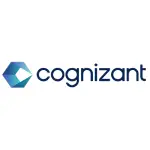- Home
- About Us
- Courses
- NSHM Business School
- BBA (Bachelor of Business Administration)
- BBA – Hospital Management
- BBA – Global Business
- BBA – Sports Management
- BBA – Accountancy, Taxation & Auditing
- BBA – Accountancy, Taxation and Auditing + BSE Certification
- BBA – Banking & Financial Services
- MBA (Master of Business Administration)
- Executive MBA
- MHA (Master of Hospital Administration)
- NSHM Institute of Health Sciences
- Bachelor of Pharmacy
- Bachelor of Pharmacy (Lateral)
- Bachelor of Optometry
- B.Sc. – Psychology
- B.Sc. – Dietetics and Nutrition
- B.Sc. – Medical Lab Technology
- B.Sc. – Radiology & Medical Imaging Technology
- B.Sc. – Critical Care Technology
- B.Sc. – Yoga
- Master of Optometry
- Master of Optometry (BL)
- Master of Pharmacy – Pharmacology
- Master of Pharmacy – Pharmaceutics
- Master of Public Health
- Master of Public Health (BL)
- M.Sc. – Clinical Psychology
- M.Sc. – Dietetics and Nutrition
- M.Sc. – Medical Lab Technology
- M.Sc. – Radiology & Imaging Technology
- M.Sc. – Yoga
- M.Sc. – Yoga (BL)
- NSHM Design School
- NSHM Institute of Computing & Analytics
- NSHM Institute of Engineering & Technology
- B. Tech. – Mechanical Engineering
- B. Tech. – Mechanical Engineering (Lateral)
- B. Tech. in Civil Engineering
- B. Tech. – Civil Engineering (Lateral)
- B. Tech. – Computer Science Engineering
- B. Tech. – Computer Science Engineering (Lateral)
- B. Tech. – Electronics & Communication Engineering
- B. Tech. – Electronics & Communication Engineering (Lateral)
- B. Tech. – Artificial Intelligence and Machine Learning
- B. Tech. – Artificial Intelligence and Machine Learning (Lateral)
- B. Tech. – Electrical Engineering
- B. Tech. – Electrical Engineering (Lateral)
- B. Tech. – Data Science
- B. Tech. – Data Science (Lateral)
- NSHM Institute of Hotel & Tourism Management
- BBA – Aviation Hospitality Services and Management
- BBA – Travel & Tourism Management
- B.Sc. – Culinary Science
- Bachelor of Hotel Management & Catering Technology
- B.Sc. – Hospitality & Hotel Administration
- Master of Tourism & Travel Management
- Master of Tourism & Travel Management (BL)
- M.Sc. – Hospitality Management
- M.Sc. – Hospitality Management (BL)
- NSHM Institute of Nursing
- NSHM Media School
- NSHM Institute of Pharmaceutical Technology
- NSHM Business School
- Schools & Campuses
- Beyond Academics
- Admissions
- News & Events
- Contact Us
Overview

NSHM School of Engineering & Technology is among the few institutes in West Bengal to offer B. Tech in Artificial Intelligence & Machine Learning. The demand for B.Tech. graduates in Artificial Intelligence and Machine Learning in India has exponentially increased in the last few years. It has been fuelled by the explosion of internet usage, extensive penetration of smart phones, increasing use of online services, social media, e-banking and increasing incidents on human workload.
Artificial Intelligence is a well-established exciting specialization of computer science concerned with methods to make computers or machines intelligent. It trains them to learn from experience to derive implicit knowledge from the one given and to understand natural languages to determine the content of images to work collaboratively. Artificial Intelligence and Machine Learning is an emerging area with ample job opportunities across the globe.
Programme Education Objective
- To prepare the students with knowledge and skills of computing and database environments, Networking, OOPS, C, C++, Python, Java, MATLAB, NLP, AI/ML, languages, and related 4.0 and onward technologies for superior roles and careers in the realm of AI across all sectors of Health, Education, Research, Development, Industry, Automation, and Intelligent systems.
- Enable them to continuously advance their learning and practice and apply those in ethical and socially responsible ways.
Career Opportunities
By 2020, insights-driven businesses will steal $1.2 trillion per annum from their less-informed peers. Forrester Predictions 2017: Artificial Intelligence will drive the Insights Revolution. By 2025, the artificial intelligence market will surpass $90 billion.
Here are some of the roles an AI professional can look forward to in major organizations.
- Robotics Scientist
- Data Engineer
- Game Programmer
- Research Scientist
- Natural Language Processing Scientist
- Machine learning developer
- Automation and Optimization Engineer
- Big Data Scientist
- Software Developer
Programme Structure
Core Curriculum
Programming Language
Programming in C
Programming fundamentals, C , and applications in C.
Object Oriented Programming
model of object oriented programming, abstract data types, encapsulation, inheritance and polymorphism, Java: object classes and interfaces, exceptions and libraries of object collections.
Problem Solving using Python
Python Programming: intended for software engineers, systems analysts, program managers and user support personnel
Artificial Intelligence & Functional Programming Lab
AI functional experience with a high level language (C/C++, Java, MATLAB, python)
Algorithm
Data Structure and Algorithm
Program performance enablers – data structures and algorithm design methods, solve problems using linear lists, stacks, queues, hash tables, binary trees, heaps, binary search trees, and graphs
Design Analysis and Algorithm
rigorous correctness proofs for algorithms, working with major algorithms and data structures, algorithmic design paradigms, methods of analysis, efficient algorithms in common engineering design situations.
AI & ML
Introduction to AI
Artificial intelligence (AI) principles and approaches, building blocks of AI, intelligent agents: Search, Knowledge representation, inference, logic, and learning, NLP fundamentals.
Introduction to ML
concepts and techniques of Machine Learning, machine learning softwares for solving practical problems, independent study and research with data sets.
Algorithm for Intelligent Systems and Robotics
advanced algebraic tools for the description of motion, matrix algebra and Lie algebra for computing the kinematics of robots, software tools for analysis and design of robotic systems.
Application of machine learning in industries
machine learning concepts applicable to robotics, principles of artificial intelligence, thinking and decision making by robots
Database System
DBMS
database management systems, RDBMS, collection, storage, organization, processing, maintenance, and retrieval, data networks
Big Data Analysis
Hadoop ecosystem, big data analytics and machine learning approaches, volume, variety, and velocity, modern computing big data technologies and scaling up machine learning techniques, industry applications.
Data Mining
Fundamentals of data mining, tools and techniques, relevant models and algorithms, spatial and web data mining.
Networking
Data Communication and Computer Networks
fundamentals of data communication and computer networks, TCP/IP, inter-working of various layers of OSI
Neural Networks and Deep Learning
basics of — CNN, RNN, ANN, deep learning algorithms, and some applications of neural networks.
Cryptography & Network Security
basics of Cryptography and Network Security, mathematical foundations, vulnerability control, secure a message over insecure channel by various methods.
Fee Structure
Fee Structure as per latest Govt notification 466-Edn-(T)/10M-04/2004(Part IV) dated 16.10.2023
| Sem 1 | Sem 2 | Sem 3 | Sem 4 | Sem 5 | Sem 6 | Sem 7 | Sem 8 | TOTAL | |
| AY 23-24 | AY 24-25 | AY 25-26 | AY 26-27 | AY 23-27 | |||||
| Admission Fee(One-Time) | 10000 | ||||||||
| Tuition Fee | 55000 | 55000 | 55000 | 55000 | 55000 | 55000 | 55000 | 55000 | |
| Development Fee | 8250 | 8250 | 8250 | 8250 | 8250 | 8250 | 8250 | 8250 | |
| Lib-cum-Book-Bank Fee | 6000 | 0 | 0 | 0 | 0 | 0 | 0 | 0 | |
| Student Welfare, Sports & Games Fee | 500 | 500 | 500 | 500 | 500 | 500 | 500 | 500 | |
| Alumni Membership Fee | 0 | 0 | 0 | 0 | 5000 | ||||
| Total fee excluding University charges | 79750 | 63750 | 63750 | 63750 | 63750 | 63750 | 63750 | 68750 | 531000 |
Programme Type - UG
Duration - 4 years
Minimum Eligibility - 10+2 passed in Science stream. Qualifying entry requirement: WBJEE and JEE (Main).
Degree Awarded By -



































